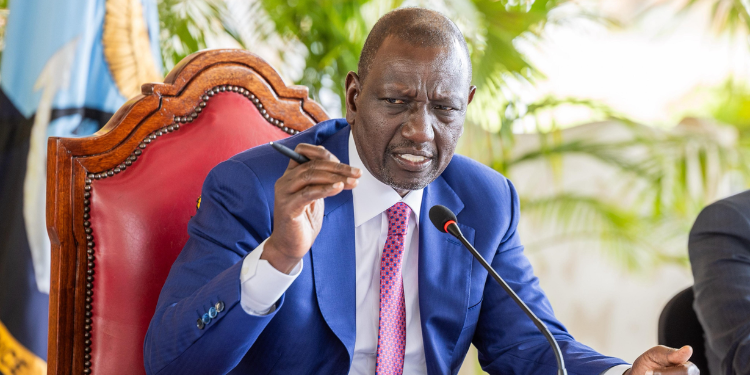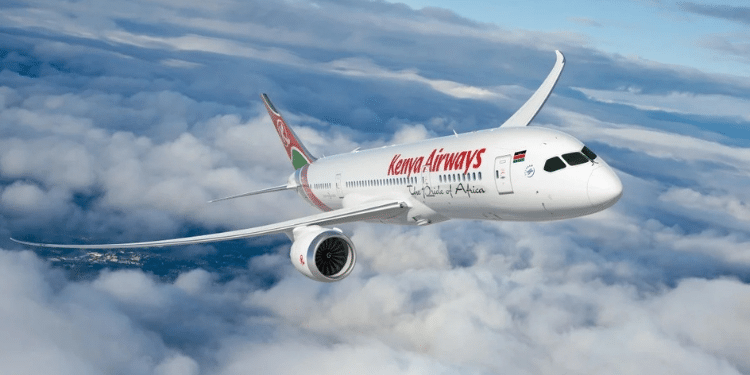For many working Kenyan mothers, juggling career ambitions and family responsibilities can be a huge challenge.
Maternity leave policies play a very important role in easing this transition, offering women the time they need to recover, bond with their newborns, and adjust to motherhood.
Although Kenyan law mandates three months (90 days) of paid maternity leave, some companies are taking the lead by offering significantly longer paid leave and supporting their female workforce.
These companies include Nestlé Kenya, Safaricom, Microsoft Kenya, EABL, Buy Now Pay Later Company, Standard Chartered Bank, and British American Tobacco (BAT) Kenya.
Also Read: Inside Ksh 970M UK Funding Set to Benefit Kenyan Mothers and New Borns
Kenyan Nestlé Maternity and Paternity Leave
In July 2015, Nestlé Kenya became one of the first companies to introduce a six-month paternity leave for male employees who are the sole caregivers in their families.
The change aligns with Nestlé’s global policy, which ensures that all primary caregivers, regardless of gender, receive fully paid leave of up to 14 weeks (4 Months), with the possibility of extending it to six months on a portion of their salary.
Previously, male employees at Nestlé Kenya were entitled to only two weeks of paternity leave.
With this policy revision, men who are sole caregivers of newborns or adopted children receive equal treatment as their female counterparts.
Additionally, male employees may work six-hour days for six months while receiving full remuneration, a benefit previously exclusive to women.
Safaricom’s Leave Policy
The telecommunications giant offers its female employees four months of fully paid maternity leave, one month more than the legal requirement.
After returning to work, mothers also benefit from six months of flexible working hours, allowing them to transition smoothly into their roles while still attending to their young children.
Moreover, to further support working parents, Safaricom provides a crèche facility staffed with professional caretakers and teachers, enabling employees to bring their children to work.
The company also offers dedicated spaces for nursing mothers to express and store milk, as well as additional support for employees parenting children with special needs.
Also Read: World Bank to Give 20,000 Kenyan Families Money for School
Kenyan Lipa Later’s Six-Month Paid Maternity Leave
In 2022, Buy-Now-Pay-Later (BNPL) firm Lipa Later took a bold step by introducing a six-month fully paid maternity leave policy for its employees across Kenya, Rwanda, Uganda, and Nigeria.
The initiative was aimed at promoting gender inclusivity and providing mothers with enough time to bond with their newborns without the stress of work-related obligations.
The company explained that the move aligns with the company’s mission to foster a gender-balanced workplace.
“Giving birth and taking care of a newborn is one of life’s most life-changing experiences. We feel there is a need for women to be able to spend more quality time with their newborns and adjust to motherhood without the stress that comes with balancing both work and such a life-changing experience,” the company CEO said then.
EABL Parental Leave Benefits
In May 2019, East African Breweries Limited (EABL), a subsidiary of British multinational Diageo, announced an enhanced parental leave policy.
The policy grants female employees up to 26 weeks (six months) of fully paid maternity leave, one of the most generous packages in the country.
Additionally, male employees receive a minimum of four weeks of fully paid paternity leave, allowing fathers to be actively involved in their newborn’s early development.
This initiative is part of EABL’s broader efforts to foster an inclusive and diverse workforce. The company recognizes that giving employees sufficient time to care for their families contributes to their overall well-being and productivity at work.
Standard Chartered Maternity Leave
On August 30, 2023, Standard Chartered announced the rollout of enhanced global parental leave benefits that took effect on September 1, 2023.
Under the new policy, all employees, regardless of gender, relationship status, or how a child permanently joins their family, are entitled to a minimum of 20 weeks (5 Months) of paid parental leave.
According to the company, the initiative is designed to encourage more equitable caregiving responsibilities among parents.
Moreover, Standard Chartered emphasized that the move aligned with their commitment to build an inclusive culture, allowing employees to balance their personal lives while building successful careers.
British American Tobacco (BAT)
British American Tobacco (BAT) Kenya launched its Parents @BAT initiative on January 1, 2019.
The policy includes 16 weeks (4 Months) of fully paid maternity leave for biological and adoptive mothers, in addition to a guaranteed return-to-work option.
Also, the initiative supports parents through flexible working arrangements and an online advisory service that offers coaching and guidance for working parents.
Microsoft Kenya Expands Parental Leave
In November 2017, Microsoft Kenya announced a revised parental leave policy that tripled the paternity leave duration for male employees from two weeks to six weeks (2 Months).
At the same time, female employees benefited from an extended five-month maternity leave, two months above the Kenyan legal minimum of three months.
The new policy applies across Microsoft’s sub-Saharan Africa offices, covering the Nairobi regional office and teams in Kenya, East Africa, and sub-Saharan Africa.
Microsoft also introduced a four-week fully paid family caregiver leave for employees caring for an immediate family member with a serious health condition.
In contrast, many local companies in Kenya still struggle to meet even the minimum legal requirements for maternity and paternity leave. Some view extended leave as an additional labor cost, often failing to support employees adequately during critical family transitions.
However, the introduction of flexible working arrangements, enhanced leave benefits, and caregiver support systems could ultimately contribute to greater employee satisfaction, retention, and productivity.
Follow our WhatsApp Channel and X Account for real-time news updates.









































































